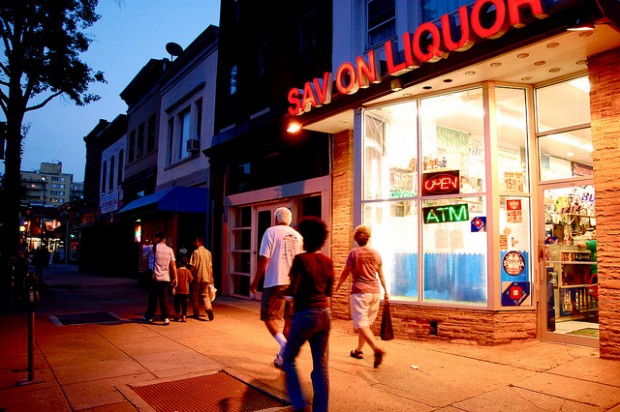Will Chains Fill 14th Street?
The 14th Street NW corridor continues its transformation, as work on luxury condo buildings marches on and announcements of restaurant openings stream in. The older businesses that opened along the strip in the aftermath of the 1968 riots are, one-by-one, closing shop (and getting millions of dollars in exchange for their buildings, if they own them). Some newer businesses are moving, too.
Development comes in waves, from pawn shops to fancier locally-owned businesses, and eventually, to chain retailers. That’s according to a few real estate experts interviewed by The New York Times, who say that 14th Street NW could eventually see its small, albiet upscale businesses, replaced by national chains and junior-sized box stores.
People move into gentrifying neighborhoods partially because they see how it could change, but also because of the unique character of such places. If national chains come, will a neighborhood lose its desirability among such newcomers? From the Times piece:
One [resident], Tim Christensen, who has lived in the neighborhood since 1989 and is president of the Logan Circle Community Association, wondered about the cost.
“I’ve said before that when the last pawnshop and the last storefront deli leaves 14th Street, I will leave,” he said. “It’s that mixture of the gritty and the upscale that gives the neighborhood a unique character. If one day it’s all gone, I think we will feel a sense of loss.”
Gentrification does indeed come in waves. Some of the first businesses that contribute to the revitalization of a neighborhood can get priced out when turnover is complete. This is especially true for business owners who lease space and have no building to sell; they can become victims of the success they helped to create.
-
http://twitter.com/monkeyrotica monkeyrotica
-
http://twitter.com/SeanGNet Sean Gallagher
-
http://twitter.com/SeanGNet Sean Gallagher
-
Vze3dnta
-
RoyBarDC
-
That Guy
-
Navajo






